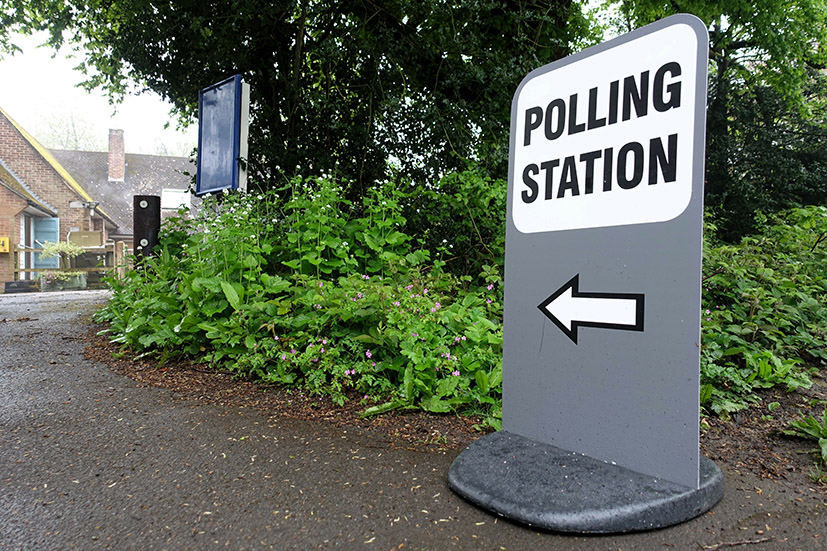Labour has won the general election in a landslide, with Keir Starmer set to become the new Prime Minister. Following the news, local business leaders have reacted.
Matthew Hill, Head of Commercial Client Services and Head of Dispute Resolution, Raworths Solicitors, said: “Given the serious challenges in recent years presented by Brexit, Covid, the invasion of Ukraine and the challenges of high inflation, business owners have been crying out for some stability.

“Whilst a new government of any colour will always involve change, the commercial clients we act for are hoping not only for as much financial certainty as possible but also long-term clarity on the regulatory framework they will be operating in. Support for business and economic growth was high on the agenda during the election campaigns and we are optimistic that words are soon followed by actions.”
Will Matthews, Head of Commercial Research, at global property consultancy Knight Frank, who have Yorkshire offices in Leeds and Sheffield, shared what he expects from a Labour government:
The prospect of a ‘stability dividend’ for the UK
“For a document that focused on ‘change’, the Labour manifesto contained a strong focus on continuity, at least in the fiscal sense. However, that should be good news for anyone still scarred by memories of the 2022 mini-budget, and the spike in bond yields that followed.

“And if stability seems a modest victory, then one must only look to Europe, where bond yields have risen in response to recent political uncertainty. In the eyes of many global real estate decision makers the UK today looks, arguably, a little more like its pragmatic former self.”
Industrial strategy – but on a budget
“Much has been said of Labour’s industrial strategy, but unlike the Inflation Reduction Act in the US, this is not one of big spending promises, mainly because the fiscal capacity just isn’t there.
“Looking at the manifesto, we can expect a relatively small investment into ports, supply chains, and green industries. Financial services is mentioned in a positive light. Labour has also recognised the importance of life sciences to UK growth, while data centres will be reclassified as nationally significant infrastructure projects, allowing planning decisions to be made by ministers rather than local councils. Critics however, will argue that the plans lack the radical, transformative changes needed to achieve Labour’s ambitious target of the highest sustained economic growth among G7 nations.
“The underlying assumption is that economic and political stability, combined with targeted government backing in specific areas, will be sufficient to entice investors back to the UK, with knock-on effects for real estate demand.”
Planning and infrastructure reform
“Labour wants to streamline the planning system, admittedly with a focus on housing, rather than commercial real estate. The addition of one planning officer per local authority may not move the dial too far, but at least signals intent. The ultimate objective is to unlock more private sector capital, with UK pension funds and insurance companies seen as potential sources of capital for domestic investment, be that in UK PLC, or long term infrastructure projects. This is not a new idea, but one that if implemented well, offers significant promise.
“Several policies mooted should be supportive of the logistics sector. These include the manifesto pledge to invest up to £1.8bn into port infrastructure across the UK, as well as substantial investments in new roads, railways, and other significant infrastructure projects, along with a focus on fixing potholes and upgrading the electric vehicle (EV) charging infrastructure.”
Fergus Baille, CEO of Bailie Group, said: “The people have spoken, and Labour has a clear mandate to deliver change. Businesses thrive on clarity, stability, and direction, and with a substantial majority, Sir Keir Starmer is well-positioned to provide the country with the stability it needs.

“The proposed roadmap for business operations and the development of an industrial strategy to drive growth are welcome initiatives. A robust Britain is built on a strong economy, and the government now has a prime opportunity to establish an agenda for growth.”
Rain Newton-Smith, CBI Chief Executive, said: “Congratulations to Sir Keir Starmer and the Labour Party. Delivering sustainable growth should be the defining mission for the new government. Business stands ready to bring its innovation, ideas, and investment to make that shared mission a reality.

“The new Prime Minister has been given a clear mandate to take the tough decisions on areas like planning reform and boosting grid capacity needed to get the economy firing on all cylinders. What firms need now is a government that’s ready to hit the ground running and is laser-focused on delivery.
“Households and businesses across the UK have shown incredible resilience through Brexit, Covid and war in Europe. With the economy picking up steam, now is the moment to get behind growth. Setting out a positive vision for the UK economy and leaning into our international leadership should be top priorities for the first 100 days.
“Building a partnership for prosperity between government and business holds the key to unlocking a revitalised pitch to global investors. By working with business, the new government can deploy the capability and capacity of industry to deliver the connected transitions across net zero, the digital economy, and the future of work needed to put the economy on a pathway to sustainable growth.”
Policy Chair of the Federation of Small Businesses (FSB), Tina McKenzie, said: “Congratulations to the new Prime Minister and Government on their decisive election victory, and congratulations to the newly elected MPs from all parties.

“The clear result of the General Election gives hope that political stability can lead to economic stability and recovery.
“There’s a golden chance in the first 100 days of this new administration to plant the seeds of small business growth, and there are a range of policies FSB hopes the new Government will bring forward.
“These include measures to ease the cost of doing business and support investment and expansion. From tackling poor payment practices by big businesses to their smaller suppliers to reforming the not-fit-for-purpose business rates system.
“The upcoming King’s Speech should include a Small Business Bill to enshrine in legislation much-needed changes to better support small firms and the self-employed.
“Supporting and growing small businesses is good for jobs, good for communities in all parts of the country, and good for the whole economy.
“We’re looking forward to getting down to business and working in partnership with the new Government ministers and their teams – building on how we’ve engaged constructively with them in Opposition. This will ensure that the small business voice is heard clearly and the right actions can be taken to support existing entrepreneurs and encourage new ones.”

Simon Dew, Development Director, Muse, said: “We have a strong track record of creating mixed-use, sustainable places in partnership with central government and local authorities, and we welcome policies that support our shared commitment to transforming communities across Yorkshire. We look forward to playing our part in delivering affordable, safe and sustainable homes and supporting communities to thrive by delivering major regeneration schemes, at scale and at pace.”
Jennet Siebrits, Head of UK Research, CBRE, said: “We are no longer living under the spectre of an impending election. The Labour party won a landslide victory, securing 412 seats. This gives the party a clear mandate and capability to drive forward its policy priorities and provides investors with clarity.

“That said, we have found there is no real difference to the overall performance of the UK real estate market, regardless of what political party is in power. Since 1970 we have had Labour-led governments for 19 years and Conservative-led governments for 35 years. Over that time, average economic growth was marginally higher during Conservative rule (2.2%) than under a Labour government (1.9%). This relationship is mirrored in commercial property returns, which, since 1970, averaged 10.5% pa under Conservatives and 10.3% under Labour.
“We have also found that consumer confidence increases in the month following an election over 70% of the time. Such a boost in sentiment will provide a fillip to the economy.
“From a real estate perspective, we particularly welcome the commitment made by the Labour party to reform the planning process. This has been an underlying challenge, with the time taken to get residential planning permission doubling over the last ten years.
“Labour has acknowledged a need to boost housing delivery to 1.5 million homes over the term of this Parliament. Executing a ‘New Towns’ programme will be challenging, requiring an overhaul of the National Planning Policy Framework (which will include redefining the green belt to grey belt) as well as substantial investment. Some first-time buyers also stand to benefit from the proposal to make the mortgage guarantee scheme permanent, who otherwise might not have been able to raise a deposit.
“Other initiatives include plans to drive infrastructure projects, including allocating £1.8 billion to upgrade ports and build supply chains in the UK, and a review of business rates. Collectively, we believe these policies could stimulate activity in the real estate market.”



